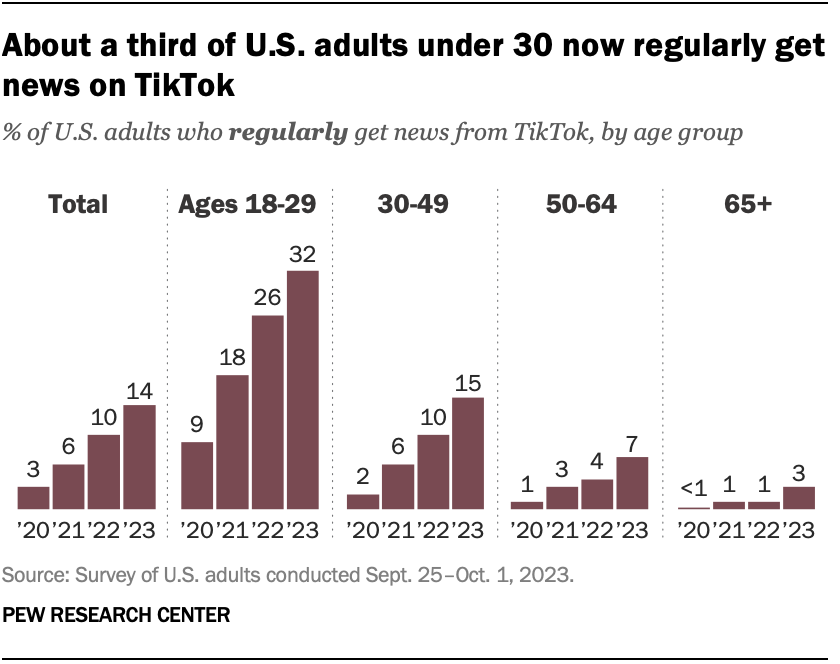

Image credit: "More Americans are getting news on TikTok, bucking the trend seen on most other social media sites," November 15 2023, Pew Research Center

Image credit: "Teens and Social Media Fact Sheet," January 5 2024, Pew Research Center

Image and caption credit: Tomwsulcer, CC0, via Wikimedia Commons








